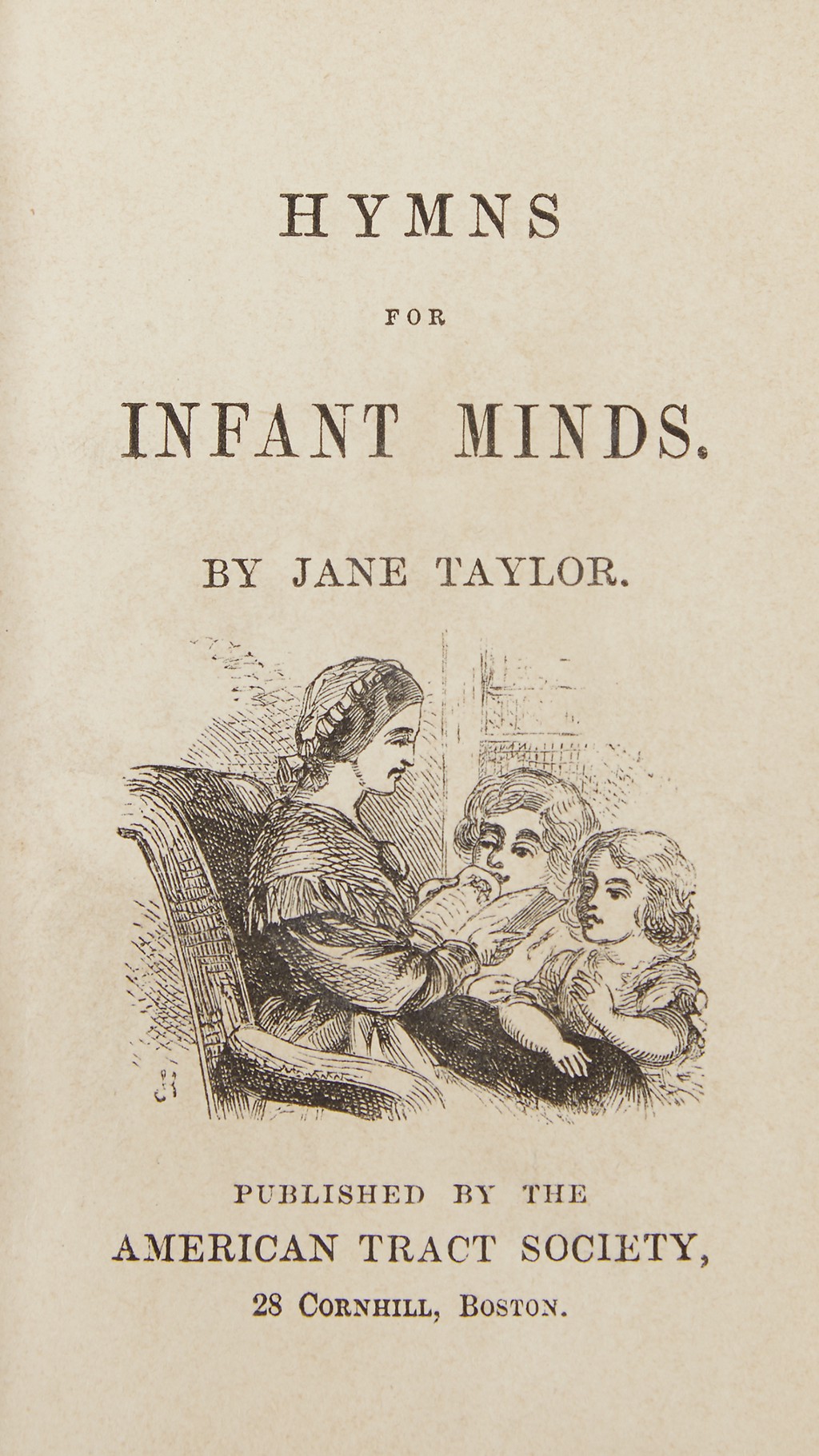Objects Are Closer Than They Appear
A significant new project

Remember Significant Objects, the Rob Walker/Joshua Glenn project from… what the fuck, 2009? HOW DID ALL THAT TIME GO BY? Jesus Christ, it seems like just yesterday.What a world. Well anyway, guess what?
PROJECT:OBJECT is a sequel to the much-discussed quasi-anthropological SIGNIFICANT OBJECTS experiment conducted in 2009–2010 by Joshua Glenn and Rob Walker, culminating in a book lavishly published by Fantagraphics in 2012. PROJECT:OBJECT will publish 100 original nonfiction stories about objects in 2017 … in quarterly “volumes” inspired by distinct themes. This new endeavor further extends Rob and Josh’s pioneering exploration of narrative, objects, and meaning into the realm of (often unexpected) personal significance.
The first volume is on the topic of Political Objects, and there are already entries from notables suchas Virginia Heffernan, Lydia Millet, Luc Sante and Astra Taylor, among others. The whole series to date can be found here, and as is the case with so many things these days, there is a tinyletter to keep you informed. Be sure to check it out; this is definitely one of the remaining examples of the rapidly diminishing “good Internet” ice caps that will some day be spoken of only in legend.
Fatima Yamaha, "Araya"
Today can’t last forever but it can certainly feel like it will.

If you are someone who finds Valentine’s Day depressing I would usually reassure you that it means nothing and you will get through it, but now that everything means nothing and I can give no reassurance that we will survive I have very little left to say.
Hey, there’s a new one out from Fatima Yahama, whose “What’s A Girl To Do” has been inescapable in certain circles over the last few years. Enjoy. That’s all I’ve got.
New York City, February 12, 2017

[No stars] Broken glass from a smashed-in newsstand panel was strewn on the wet sidewalk. Sharp bits of ice began falling with the rain. The cold air felt momentarily restorative, after hasty showering and dressing in the stuffy apartment, but in a few blocks it was just bitter. Snowflakes joined the mix. People trooped along under umbrellas. The various falling things kept changing, irregularly, but they all added up to slush when they hit the ground.
Odd Lots: Curious Objects Up At Auction
Hitler’s telephone, Lizzie Borden’s book of hymns, and a wigmaker’s set of wooden heads
Lot 1: Dial M for (Mass) Murder
This ultimate odd lot, slated for auction on February 19 in Chesapeake City, Maryland, has made headlines over the past two weeks, as many objects so closely associated with Der Führer often do. Originally black but painted red and engraved with the NSDAP eagle, a swastika, and the name Adolf Hitler, it was “Hitler’s personal telephone for the last two years of his life … and was used no doubt as a cell phone and went wherever Hitler was traveling,” according to the son of the British officer Brigadier Sir Ralph Rayner, who plucked it from Hitler’s bunker on May 5, 1945, just days after the Nazi leader’s suicide and the fall of Berlin. The victorious Russians offered Rayner Eva Braun’s black bedside phone as “a trophy of war,” but Rayner favored the red one, and they obliged.

A World War II relic to trump all World War II relics, this telephone is expected to realize $200,000–300,000. So says the auctioneer, Alexander Historical Auctions: “While Hitler vehicles, tunics, accessories, tableware, and other personal items are readily available, an item of this importance with such solid provenance is offered perhaps once in a lifetime.”

Just imagine Hitler’s stubby little fingers spinning the dial on his fancy phone … he did have small hands, didn’t he? Biographers say he definitely had an undersized penis.

Lot 2: Lizzie Borden Took a Pen…

In 1892, Lizzie Borden of Fall River, Massachusetts, was accused of killing her father and stepmother with an axe. A jury acquitted her, but many, if not most, believed her to be guilty, prompting the infamous jump rope rhyme:
Lizzie Borden took an axe
She gave her mother forty whacks
When she saw what she had done
She gave her father forty-one.
Clearly a far cry from the volume of religious songs, Hymns for Infant Minds, that she once possessed and signed in ink, “Lizzie A. Borden.” Published circa 1850, about ten years before Borden’s birth, it is undoubtedly the kind of literature left lying around their strict Congregationalist household for the edification of Lizzie and her old sister, Emma. Now the book has turned up at Freeman’s in Philadelphia, where it will be for sale on February 17.

For collectors of true crime memorabilia, some of whom were recently profiled in Paul Gambino’s Morbid Curiosities, this Borden-autographed book might just be worth the $1,500–2,500 auction estimate.

Lot 3: Heads Up

These ten carved wood wigmaker’s blocks, standing about 9 ½” high and donning rudimentary yet ominous facial expressions, in various shades of human skin pigmentation, were made in Germany and Belgium in the early twentieth century. Presumably utilized by a wigmaker to upraise a hairpiece while he or she sewed, or to model the final product, today their main service would entail terrifying guests as an eerie addition to your home décor. You could pull a John the Baptist at your next dinner party, or go all out for Halloween next year — all for a winning bid in the neighborhood of $3,000–5,000 at Christie’s in London on February 22.
Rebecca Rego Barry is the author of Rare Books Uncovered: True Stories of Fantastic Finds in Unlikely Places.
Breaking Bad News Bears
Why We Need Failure (And Baseball) In Our Lives

This winter may have been milder than most, but by mid-February I still yearn to utter those three little words celebrated every year at this time: PITCHERS AND CATCHERS. Like that first foolhardy crocus, baseball is spring’s middle finger to winter. And as Major Leaguers prepare to report for Spring Training, I’ve been schlepping my own twelve-year-old son to his little league “winter workouts” that began in January and continue up until the beginning of his travel baseball season at the end of March.
Recently, with thoughts of baseball dancing in my head, I had the urge to fire up Netflix and watch the original Bad News Bears, which was my first exposure to our national pastime which I saw in the theaters with my Dad as a little kid. Nearly forty years removed from my original childhood viewing, I was surprised that what stood out most to me now was how poignantly the theme of failure and disappointment threads its way through the entire film. The Bad News Bears was released in 1976, on the heels of our inglorious exit from Vietnam, which perhaps explains why the film ends (as does its contemporary, Rocky) with a celebration of endurance, as opposed to victory.
Walter Matthau gives a brilliant performance as Morris Buttermaker, a bitter, washed-up ex-minor leaguer who only agrees to coach a group of precocious, ethnically-diverse misfits for the under-the-table salary that will supplement his pool-cleaning job and keep him in Budweisers and cheap cigars for the remainder of the season. At first, he’s resigned to collect his money, drink his beer, and let the kids wallow in their own incompetence. But after a humiliating beat-down at the hands of the type-A Yankees, Buttermaker decides to turn the team’s season around. He coaches them in fundamentals, builds some team camaraderie, and in a surprisingly current baseball move he acquires two star free agents: Amanda, a former pitching protégé/daughter of an ex-girlfriend, and Kelly, the Harley-riding town delinquent (and dreamboat) who just happens to be the best hitter in the county.
Fueled by his team’s success, and seeing a chance to erase all his life’s failings with one gleaming trophy, Buttermaker goes from a lovable if eccentric mentor to a ruthless, driven general — transforming from Yogi Berra to Billy Martin in two scenes flat. He orders his weak players to lean over the plate and take one for the team, strains Amanda’s arm, and bullies Kelly into becoming a ball-hogging one-man defense. The Bears are clearly wounded by Buttermaker’s sudden zeal for winning at any cost, especially Amanda who most acutely feels the sting of Buttermaker’s betrayal as both a coach and a father figure. But in the final game, with the season on the line, Buttermaker sees the hurt and disappointment in his players’ eyes, and has a character-defining change of heart. In the last inning, he gives his least-used players their moment in the sun, effectively ending the team’s (and Buttermaker’s) chance to be winners for once in their lives.
In many ways, the Bad News Bears character played by Walter Matthau is a lot like another Walter now enshrined in the anti-hero pantheon—“Breaking Bad”’s Walter White, who, like Walther Matthau’s character, had also fallen short of his dreams, was a teacher by default, and relied on a juvenile ex-con to help him achieve a personal, pyrrhic victory over those who dared to view him as a failure. There’s also a notable symbolic parallel — early on, both Walter White and Morris Buttermaker are plagued by broken windshields on their run-down cars. But whereas Walter White insists on repeatedly fixing his cracked windshield, believing he can force the chaos and failure surrounding him into submission, Walter Matthau leaves his car the way it is. His character is ultimately resigned to live with the brokenness in his life, and this is the most important lesson that he imparts to his players: avoidance of failure is beyond their control, but how they support one another through life’s struggles is not.

One November day not long after the Bad News Bears’ release, a bored class secretary at Yale handed in a rhapsodic daydream about baseball in place of that day’s minutes. A year later, when that secretary became the youngest president in Yale’s history, his essay appeared in the Yale alumni magazine. The author was Bart Giamatti, and his moving depiction of the final inning of the Red Sox’s 1977 season is his love letter to the cycle of hope and inevitable disappointment that punctuates all of our lives. Giamatti’s acknowledgment of his own mortality at age 40 also serves as a poignant, unintentional foreshadowing of his sudden and tragic death just 154 days into his tenure as commissioner of Major League Baseball, merely a week after his excruciating negotiations with Pete Rose which led to the legendary hitter’s lifetime ban from baseball.
In Green Fields of the Mind, Giamatti writes,
It breaks my heart because it was meant to, because it was meant to foster in me again the illusion that there was something abiding, some pattern and some impulse that could come together to make a reality that would resist the corrosion; and because, after it had fostered again that most hungered-for illusion, the game was meant to stop, and betray precisely what it promised.
Green Fields, like so much baseball poetry, deals at its core with our struggle to accept the temporary, fleeting nature of life’s successes as an integral (if painful) part of the human condition. Nearly 100 years before Giamatti set pen to paper, this theme was immortalized in a piece by Ernest Thayer in the San Francisco Examiner: Casey at the Bat: A Ballad of the Republic Sung in the Year 1888. It is no accident that our most famous poem about baseball also ends in failure, as the hometown hero strikes out in the bottom of the ninth with two men left on base. Yet as joyless as the Mudville fans are on that ignominious day, they will be back, returning to the ballpark again and again — in hopes of a different ending, to be sure, but also because that feeling in their gut after Casey’s failure is just as vital a part of their lives as the fleeting thrill of victory from the game before it, or the one after.
Die-hard fans such as these are also immortalized in baseball’s unofficial anthem, “Take Me Out To the Ball Game.” Jack Norworth’s lyrics speak of fans who would rather be at the ballpark than anywhere else, even if only to witness the shame of another loss by their home team. Interestingly, according to the little-known verses the hero of this song is also named Casey — Katie Casey, and today we sing Katie’s fervent supplication at every 7th-inning stretch — a fan’s chorus that, amazingly, ends not in victory, but just like Casey at the Bat, with a strikeout on three pitches. Might we even imagine that Katie Casey was actually the eponymous slugger’s daughter, and that In 1908, the year “Take Me Out to the Ball Game” was written, she had grown into a young woman with a love of baseball nurtured by the very unpredictability that she witnessed as she watched her father’s epic swing and miss twenty years earlier?

A few years back, when my son was eight years old and just beginning to embrace the game himself, I enrolled him in a baseball skills boot-camp over winter vacation at Frozen Ropes (if I ever open up a baseball training facility, I’m calling it, “Dying Quails”). I placed his empty equipment bag on an empty seat (stadium, of course) near where he’d be practicing, and went to sign the towering stack of waivers required for him to use the batting cage and other “intensive” drills. When I returned, there was another dad sitting in the seat next to mine. As I drew closer, my heart skipped a beat as I realized that my seat mate was none other than sports talk-radio legend Mike Francesa.
Feeling shy and intimidated, I quickly introduced myself and told him I was a big fan, then took out my phone with the intention of giving Francesa and his Diet Coke uninterrupted privacy for the remainder of the class. But before I could even check my email, Francesa began a “conversation” with me:
“All these parents who sign their eight-year-olds up for hours and hours of training are kidding themselves. It doesn’t matter how many drills these kids do — to succeed at the highest level, it’s all about talent.”
“But,” I contributed.
Francesa pressed on, unconvinced by my artful retort, “Parents can sign their kids up for travel leagues, winter leagues, fall leagues…in the end, a kid with serious talent will walk onto his high school field never having picked up a baseball before, and within two weeks he’ll be the best player on the team.”
“But look at Barry Zito,” I managed to reply. “I read that his dad was an orchestra conductor who knew nothing about baseball, but when he saw his son’s talent and passion for the game, he worked with him 365 days a year on his pitching, starting at age seven, even building a mound in their backyard and hiring a former Cy Young winner to coach him.”
Francesa shot me an incredulous look that the majority of his callers are fortunate enough not to see through their radio. “You’re bringing up Barry Zito?? That kid had tons of raw talent! He didn’t go in the first round of the ’99 draft because he played catch with his dad in their backyard!”
I decided not to press the issue further, and instead retreated to harmless small-talk about the woeful state of the Mets as we watched our sons have moments of success and failure during their circuit of fielding, hitting and pitching drills on the astroturf field. As the boys played, I couldn’t help but think about the embarrassing moment of failure that Francesa himself had endured a few months earlier, when he was caught dozing on-air during his interview with the Yankees beat reporter. The video clip from the show’s YES Network feed of Francesa nodding off was still circulating at a mercilessly viral pace. But what many had failed to report over the ensuing weeks’ endless dissections of Francesa’s debacle was that the reason Francesa had endured perhaps the biggest failure of his career was because he had stayed up the entire previous night with his young son, who had suffered a terrible asthma attack.
The latest fielding drill ended, and the boys were sent scurrying to us for a quick water break. As I handed my son his water bottle, I kept thinking about what Mike had said. That maybe we can’t Malcolm Gladwell our kids’ way into guaranteed success. That we need to rid our youth leagues of the scourge of PED’s — Parentally Eliminated Disappointments. That perhaps we are trying too hard to help our children avoid an intrinsic part of baseball, and an invaluable component of their athletic (or artistic, or academic, or romantic) endeavors — the gut-wrenching moment of failure which will lead to a deeper understanding of themselves, their peers, and their lives.
I gave my son a hug and sent him back onto the field. I saw Mike do the same, but not before he looked son in the eye, and critically evaluated his performance in this most essential way: “Hey, kid. You having fun out there?”
Senator Mom
Does Elizabeth Warren have to do everything around here?

Senator Elizabeth Warren let Rachel Maddow know her plan. Judge Neil Gorsuch was making his rounds to all the Senators, to meet them and woo them, including her, and Senator Warren suggested that Maddow hide under a desk, with tape rolling, in case Gorsuch bashed Trump, and they could politicize the moment.
“We don’t want him squirreling out of anything before the confirmation hearings begin. I want him on the record he will limit the power of the executive, and I want to be the one holding him accountable. Let’s gotcha Gorsuch, by golly.”
Senator Warren knew that if Rachel Maddow recorded her being sassy yet righteous towards Judge Gorsuch she’d be able to raise even more money than she had when she tricked Senator McConnell into interrupting her Coretta Scott King reading.
“This is your caucus,” Rachel Maddow validated the senator from Massachusetts but said more to the camera and for posterity.

There was a light knock on the door. Rachel Maddow high-fived Elizabeth Warren and scooted under the desk. It was Neil Gorsuch, and he was extremely punctual.
“It’s a pleasure to meet you, Senator Warren,” the Denver judge said as he extended his hand. “And Ms. Maddow. Is that you under there? I am so happy you’re here.” He peered under the desk. “Thank you both for your tireless public service.” He put his hands together as if in prayer and bowed patronizingly.
“You know, you could’ve been late if you needed to be. Daddy’s not going to holler at you when he gets home from work. That’s not the world I live in, Judge Gorsuch,” Senator Warren said loud enough so mic’d up Rachel Maddow could pick up the audio.
Judge Gorsuch nodded agreeably.
“Anyway, thanks for coming in to review this questionnaire,” Senator Warren waved a bunch of papers in Judge Gorsuch’s face, “but you should know that I stand with Merrick Garland.”
“He’s no longer in the running, Senator.” Judge Gorsuch cleared his throat like an introvert. “His nomination expired last month.”
“Are you mansplaining to me?” Elizabeth Warren ducked down and looked directly into the camera, smirking but earnestly.
“Of course you know how it works. I’d never suggest otherwise. I read your bankruptcy casebook to prepare for our talk today.”
“You said you were disheartened by President Trump’s statements about the Judiciary. But then you walked back from that. I wanted to give you the opportunity to really say what you think, and to mean what you say,” Senator Warren said like a mother whose teenage son, vomiting from alcohol abuse, told her he was sick because he had eaten bad pizza.
“I see here, for instance, that your middle name is McGill.” Senator Warren tapped the questionnaire. “That’s a fun, patrician name. Sounds like a last name. People whose middle names are also last names, I find, have never tried fast food in their entire lives. No need. Their country clubs cook for them. I bet you find that the President’s predilection for fast food like McDonald’s is somehow both piggish and boring. That’s what you meant when you wrote on this questionnaire that your name is Neil McGill Gorsuch, yes?”
Judge Gorsuch looked at Rachel Maddow to see if this was for real. Senator Warren’s iPhone pinged.
“Senator Schumer sometimes talks to me via Facebook comment thread. He says it’s more transparent. I’m sorry but this will just take a second.” Senator Warren unlocked her phone. “He’s addicted to nasal spray again, Rachel.”
Rachel Maddow made an ‘of course he is face’ from under the desk.
“You. Need. To. Wean. Yourself. Off. That. Garbage.” Senator Warren recited as she pecked onto her phone. “It. Will. Raise. Your. Blood. Pressure.”
“Hold on, it says he is typing.” Rachel Maddow said, now looking into her own phone.
“He says he can’t. He gets plugged up every twelve hours like clockwork. I don’t know what he wants from me anymore.”
“Tell him you’re not his mom.” Rachel Maddow winked to Judge Gorsuch and then to the camera.

“I see you once spoke by phone to Steve Bannon,” Senator Warren said to Judge Gorsuch. “This questionnaire doesn’t elaborate on the nature of your conversation but am I correct to assume that you told him that you’ll never watch “Seinfeld” again, and thus won’t accidentally enrich him, and that you’ll even change the channel as soon as a “Seinfeld” promo airs, even if you’re in the middle of something very good?”
Judge Gorsuch looked at his hands.
“What’s your favorite show, Judge?” Rachel Maddow tagged in.
“That one with a young pope, probably?”
“Steve Bannon hates the Pope so you weren’t talking about that with him,” Senator Warren’s office phone began ringing. “Hold on, jeepers. I’m so sorry.” She answered, “Hi Senator Franken.” One second, she gestured to Judge Gorsuch.
“It’s just a 5K, Al. Couch to 5K is the program. You told me you wanted to be able to keep up with grandkids one day.”
She hit a button on the phone. “Frick. I meant to mute it and I hung it up. The American experiment is imploding and Congress thinks it’s a good time to upgrade our dang phones.” The phone rang again. “Jesus, Mary and Joseph, here he is again.”
“Hi, Al. No, of course I didn’t hang up on you. I meant to mute you.” Senator Warren made a ‘wrap it up’ motion with her free hand. “No, no. I hardly ever mute you.” She elaborately rolled her eyes. “I didn’t mean, hardly ever. I never mute you. Neil Gorsuch is here, is all.”
Judge Gorsuch pulled out his own phone and began texting his wife that interviews were a disaster but not predictably so.
“Yes, we’re doing our interview now, Al. So just take a few breaths. What does the app say? Jog a half mile and then walk a quarter mile and then jog a half mile? You can do that, Al. It’s a half mile from my office to the Senate floor. Imagine we are jogging together to the Senate floor, where we will mouth off to Senator McConnell. You always have fun doing that.”
Rachel Maddow beamed at the warmth Senator Warren was exuding. It was a necessary antidote to institutions crumbling everywhere around her.

“Judge Gorsuch, you list here your most significant decision as Gutierrez-Brizuela v. Lynch, which I read as your first step towards undermining the power of the administrative state.” Senator Warren said the case name in proficient Spanish.
“I wouldn’t say undermine.”
“Sure, sure. What you mean to be saying is that federal agencies, ICE agents aside, are probably our last bulwark against Trumpism and that civil servants are heroes. Lifetime tenure empowers them to stand up to autocracy.”
Judge Gorsuch looked out the window and focused on a cardinal that landed on a tree branch because that is not what he meant to be saying.
Senator Warren’s iPhone rang. “Oh boy. It’s Senator Feinstein. I have to take this. She’s been in a bad place lately.” She waved her hand, exasperatedly. “Hi Dianne. He didn’t pay out the prize money yet? You know he is a crook, Dianne. The other security guards at the metal detectors know he is a crook. Didn’t he do this last year with the pool money as well?”
She mouthed, ‘I’m so sorry’ to both Judge Gorsuch and Rachel Maddow, who was now sitting in a large comfy chair, legs slung over the arm.
“What’s the recourse? Gambling, even light interoffice gambling, is against the law. It’s not like you can press charges.”
She moved the receiver away from her mouth, and cupped it. “Can she?” She asked Judge Gorsuch.
“I’ll have to look it up?” The judge offered.
“Dianne, he took the money because he was desperate. He deserves your pity, not your scorn.”
“She’s doing a nice job leading the opposition. Don’t you agree?” Rachel Maddow asked Judge Gorsuch, who was now fidgeting distractedly, and thinking up ways to end this interview. “She thinks I’m producing this segment to demonstrate how you’re a stealth dick. But it’s going to be about how she is a majestic mother eagle, prudently teaching her eaglet colleagues how to fly.”

“Okay, back to the questionnaire, yeesh.” Senator Warren wrapped on the stapled packet with her knuckles. “You write here that Justice Sotomayor quoted you in a concurrence she wrote about a prisoner’s free exercise of religion. Did you mean to say that Justice Sotomayor is a goddess and that empathy really is the perfect theory of the constitution and that she should quit smoking so she lives forever and never needs to be replaced?”
Rachel Maddow said “Amen” sincerely for the first time in her life. Senator Warren swung around, and looking directly into Rachel Maddow’s camera said, “Justice Sotomayor, please, please, please quit smoking.”
The door opened. Senator Klobuchar walked in without knocking. She was wearing frumpy yet sensible walking sneakers.
“Oh drat,” Senator Warren said to Judge Gorsuch. “We climb the Capitol dome stairs every day at 11am. You’re welcome to join us.”
“It’s after 11 though?”
“Nice gotcha, Judge Gorsuch,” Senator Klobuchar said. “Being on time is a construct though.”
“Don’t bother, Amy. He’s polite but opaque. I’m writing in Garland. Did you remember your pedometer today?”
Rachel Maddow stopped taping as the Senators exited for their constitutional. Senator Warren began streaming “What’s Up?” by the 4 Non Blondes from her iPhone.
None Of Us Can Focus
Try adding some fiber to your media diet.

If you’ve noticed getting things done at work is harder now than it was before the inauguration, you’re right. A new survey commissioned by BetterWorks (a software company that helps people set and track goals) found that politics has slowed a lot of people down post-election.
Basically, the explanation is this: In 2017, you’re more likely than ever to have a job that requires you to be on a computer for at least some of your day. If you’re on your computer, there’s an 87% likelihood that you’ll use a portion of that time to check political posts on Facebook or Twitter. And if you’re using those platforms, you already know that everyone hanging out there is… fired up.
There seem to be two big results that accompany a rich diet of political links and screeds. First, they’ve noticed a rise in something called “workplace incivility,” and second, 29% of workers say they are less productive now than they were before the election. That number climbs to 35% “among those who read 10 or more political social media posts per work day.” In other words: more takes = less will to remember ccing Katie from marketing on that followup email.
Here’s something I’d like to point out, though: productivity isn’t necessarily good. And decreased productivity isn’t necessarily bad. Reacting to a barrage of depressing news with a depressed mood is… the exact correct order of operations, and the expectation that you should be able to generate uniform output at work despite the 70 billion variables that go into inhabiting a mortal form on a given day just isn’t realistic. To put it another way, if the news were this consistently awful and you were still describing your mood as perky and upbeat, you’d be unhinged. Locking your jaw and smiling through stress is a lot scarier sounding than, “Today I read that Betsy DeVos said [something], so I spent 10 minutes on Wikipedia trying to understand it.” One of those people is engaging their feelings, and the other might scream unexpectedly because SOMEone forgot to CHANGE the TOILET PAPER ROLL in BATHROOM again.
So we’re gonna be less focused at our jobs. That makes sense. But since the frequent-post-readers had a 35% admission of decreased productivity compared to the fewer-post-readers’ 29%, it might also make sense to try and figure out how much new information we’re able to take in without dying inside. Because, for the foreseeable future… this is the media landscape.
Something as simple as ingesting news without the middleman of Twitter seems like a place to start. Prioritizing a roundup like NYT’s morning briefing or NPR’s hourly news summary over Twitter in your ~media digestion routine~ might help get you to the big headlines without slapping yourself in the face with the same bad news over and over again. Cause it turns out hearing, “Something happened” once and authoritatively is less of a nightmare for our state of mind than a chorus of “Something happened,” “Something didn’t happen,” “25 somethings that happened before something happened,” “You won’t believe this iconic tweet thread about something that happened,” “Imo people who say something happened are bad,” etc. Hm.
What's In A Domain Name?
A dot by any other com — ugh, sorry.

The making of a “good domain name” is, I heard in conference sessions and was told repeatedly by NamesCon attendees, more alchemy than chemistry. Again, brevity is typically a good move, though memorable phrases are also effective. Some TLDs are hot right now (.io), and some single words are always a good investment (lotions.com, furs.com), but good TLDs and good words together don’t always work (as was explained to the owner of furs.io and lotions.io in one session). Long-time domainers also had oddly specific advice — ”Hyphens make your domain less valuable — unless you’re in Germany” and “.info is a dead zone.”
Ingrid Burrington goes to Las Vegas for “NamesCon, an annual conference for the domain-names industry.” This is enjoyable and you may learn something, and also you are not the one who had to go to Vegas for a domain names conference, so it’s really a win in every way.
All You Need is Love But All You Really Want is Candy
And other answers to unsolicited questions.

“It’s almost Valentine’s Day and I’m single. Should I just call in sick to work?” — Valentine-less Vinnie
Just try to remember that all these over-the-top expressions of love you will see all around you if you work in any kind of office are overcompensating for the fact that the relationship has kind of settled into a boring rut. The beginnings of relationships are usually the most fun. I term this stage “the sugar rush.” After that, it’s always kind of downhill. I term that “the break-up.” The break-up may last a week, a year, or the rest of your life. But it’s coming sooner or later. Possibly through death.
There’s nothing wrong with being single. That’s a great way to live. Eat what you want, watch whatever channel you want. I used to watch re-runs of Mary Tyler Moore and not get the concept that there was something wrong with Mary and Rhoda. Their lives seemed pretty cool to me. Mary worked at a TV station! That’s pretty awesome. I like TV. I never thought of them as unmarried. I thought of them as just living.
Valentine’s Day is just a fake holiday meant to sell cards, candy and flowers. It has ballooned into a February date night which you cannot ever win. Can you really buy your way through a great relationship? If you could, wouldn’t Donald and Melania Trump be the happiest couple in the world? Even if you get flowers delivered and a great card and a love sonnet written to you while you are eating lobster at a fancy restaurant, you will still wake up the next morning wondering if you’re with the right person. That’s just human nature. Western Literature is basically all about adultery. If people were happy in relationships there would be no poems, no Netflix, no Radiohead songs. Humans are not built for happiness. We are built for constant disappointment.
So there is no way to do Valentine’s Day correctly. Some unnameable thing will always be wrong in your relationship. You’ll be sitting at Valentine’s Day dinner, surrounded by other Valentine’s Day diners. Someone else at another table will do something public and cute. Everyone will take notice. Some will clap. You will look across the table at the other person. Give them a little curl of your lips. “Is everything alright?” you’ll ask, poking at a potato. “Yes, everything is wonderful!” they’ll say. But it’s not. There’s something weird about your nose they never noticed before. For no particular reason, things are starting to unravel. Even now, on this happiest and most romantic of days, it’s all coming apart like a Chekhov play.
Single people are generally meant to feel inferior on Valentine’s Day. But this is just by the tyranny of people in relationships. They’re jealous that you can sleep with whomever you wish! Or watch whatever channel you want. Or basically are in charge of your own life and do not have to constantly figure out what’s going on in the mind of another. But single people are not inferior. You still get to eat candy. And there’s so much candy. You could also get laid at practically any bar by like walking in having a few drinks and just waiting around. Someone will sleep with you eventually, if you want that.
So don’t call out of work on Valentine’s Day. Call out of work on the day after Valentine’s Day. This way you can avoid having to talk to your co-workers about how wonderful their Valentine’s Day was when it was probably just O.K. You can avoid talking to them about the weird thing they noticed about their significant others. You can just stay home and eat delicious candy. And the people you work with will think you had the most wonderful Valentine’s Day of all time. And they will be correct.
If not having a significant other on Valentine’s Day bums you out, text me at (949) 546-9368. I will send you a personalized Valentine’s Day love haiku. It will probably be about candy. Because love is stupid. Monogamy is death. And lobster is delicious.
Jim Behrle lives in Jersey City, NJ and works at a bookstore.

